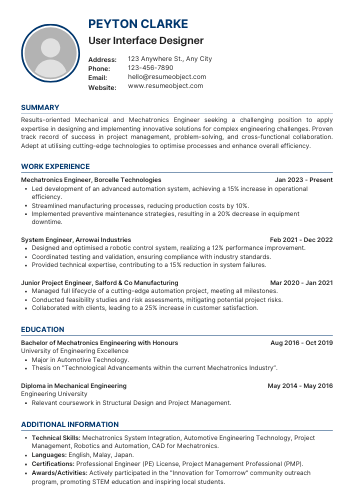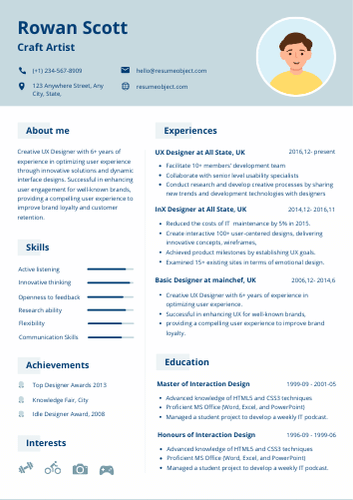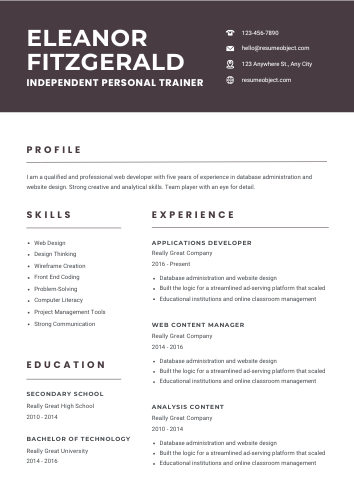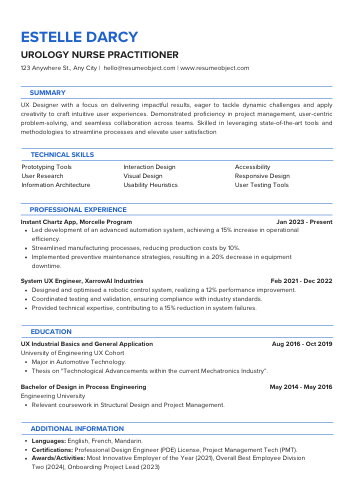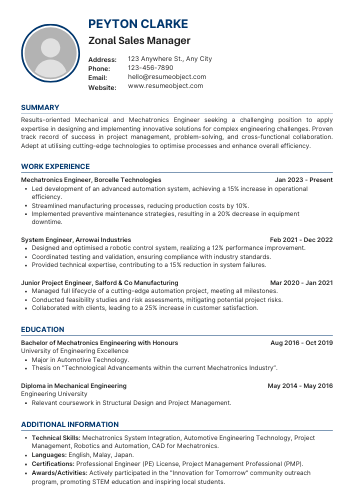40 Laboratory Skills for Resume – How to List for Laboratory Resume
Laboratory Skills on Resume
Boost interview success by showcasing Laboratory Skills for Resume with clarity and impact. This guide highlights 40 essential techniques—sample handling, aseptic technique, analytical instrumentation, data interpretation, quality control, and safety compliance—and shows how to list them strategically by relevance, proficiency, and measurable results to outrank competitors and land your ideal lab position while conveying adaptability, teamwork, and technical leadership expertise.
Why Laboratory Skills Matter for a Resume
Clear relevant laboratory skills showcase technical competence, safety awareness, analytical ability, and adherence to protocols, helping hiring managers quickly assess your fit, reduce onboarding time, and demonstrate readiness to perform accurate experiments, maintain equipment, and contribute effectively in laboratory environments.
Demonstrating Laboratory Skills for Resume is essential to stand out in competitive hiring. Clear, specific laboratory competencies show employers you can produce reliable results, follow protocols, and maintain safety and compliance—qualities that translate directly into efficiency, reduced errors, and trust.
- Technical proficiency: hands-on experience with instruments, assays, and data analysis ensures accurate, reproducible results.
- Safety and compliance: knowledge of SOPs, PPE, and regulatory standards protects staff and preserves sample integrity.
- Problem-solving: troubleshooting equipment and protocols minimizes downtime and improves workflow efficiency.
- Documentation: meticulous record-keeping and reporting support reproducibility, audits, and publication-quality data.
- Teamwork and communication: clear lab notes, collaboration, and training ability enhance productivity and safety culture.
- Adaptability and learning: mastering new techniques and technologies keeps labs competitive and your resume current.
- Quality control: performing calibrations and validations ensures trustworthy outcomes and compliance with accreditation bodies.
- Time management: prioritizing tasks meets deadlines, maximizes throughput, and supports project timelines, consistently daily.
Boost your resume with targeted landscape design expertise—explore essential skills and examples at Landscape Designer Skills for Resume and truly impress hiring managers today now.
Top 20 Skills for a Laboratory Resume
When crafting a resume for a laboratory position, highlighting the right laboratory skills is essential to stand out. Here’s a top 20 skills list for your laboratory resume:
- Analytical Chemistry
- Microbiology Techniques
- Laboratory Equipment Proficiency
- Quality Control Procedures
- Data Analysis and Interpretation
- Safety Protocols and Compliance
- Sample Preparation
- Instrument Calibration
- Laboratory Information Management Systems (LIMS)
- Molecular Biology Techniques
- Troubleshooting Laboratory Equipment
- Chemical Handling and Storage
- Good Laboratory Practice (GLP)
- Experimental Design
- Report Writing
- Time Management
- Team Collaboration
- Problem-Solving Skills
- Attention to Detail
- Technical Documentation
Top Hard Skills for a Laboratory Resume
This section highlights the top hard skills employers seek on laboratory resumes, showcasing technical expertise, equipment proficiency, and analytical capabilities that validate competence and improve hiring prospects. Include relevant certifications and measurable achievements career advancement.
-
Analytical Chemistry: Proficiency in analyzing chemical compounds and understanding their properties and reactions.
-
Microbiology Techniques: Skills in culturing, isolating, and identifying microorganisms in various samples.
-
Molecular Biology: Ability to perform DNA/RNA extraction, PCR, and gel electrophoresis for genetic analysis.
-
Spectroscopy: Knowledge of techniques like NMR, IR, and UV-Vis for analyzing substances based on their interaction with light.
-
Chromatography: Expertise in separating mixtures using methods such as HPLC and gas chromatography.
-
Lab Equipment Operation: Proficient in using laboratory instruments like centrifuges, pipettes, and microscopes.
-
Quality Control: Skills in implementing and maintaining quality assurance protocols to ensure accuracy and reliability of results.
-
Data Analysis: Ability to analyze and interpret experimental data using statistical software and methods.
-
Good Laboratory Practices (GLP): Familiarity with regulations and standards that ensure safety and quality in laboratory work.
-
Biotechnology Techniques: Knowledge of recombinant DNA technology and other methods used in genetic engineering.
-
Safety Protocols: Understanding of laboratory safety procedures to minimize risks and ensure a safe working environment.
-
Sample Preparation: Skills in preparing and handling samples for various types of analyses and experiments.
-
Electrochemistry: Proficiency in techniques that study chemical processes through the movement of electrons.
-
Tissue Culture: Ability to grow and maintain cells or tissues in controlled environments for research purposes.
-
Forensic Analysis: Skills in applying scientific methods to analyze evidence from crime scenes for legal investigations.
Other Skills for Resumes
Top Soft Skills for a Laboratory Resume
Following are the top soft skills for laboratory resumes, highlighting interpersonal qualities, communication, problem-solving, adaptability, teamwork, attention to detail, and reliability that enhance technical competence, improve collaboration, ensure safety, and demonstrate professionalism to employers today.
-
Communication: The ability to clearly convey ideas and findings to colleagues and stakeholders, ensuring effective collaboration and understanding.
-
Teamwork: Working effectively within a team environment, contributing to group goals and supporting colleagues in achieving shared objectives.
-
Problem-Solving: The capability to analyze complex issues, identify solutions, and implement effective strategies to overcome challenges in laboratory settings.
-
Attention to Detail: A critical skill for ensuring accuracy in experiments, data recording, and analysis, minimizing errors that could impact results.
-
Time Management: The ability to prioritize tasks and manage time efficiently, ensuring deadlines are met while maintaining high-quality work.
-
Adaptability: Flexibility to adjust to new protocols, technologies, and changing laboratory environments, demonstrating resilience in the face of challenges.
-
Critical Thinking: The capacity to evaluate information, assess hypotheses, and draw logical conclusions based on empirical evidence and data analysis.
-
Organizational Skills: Keeping laboratory workspaces and data systematically organized, facilitating easy access to materials and information when needed.
-
Interpersonal Skills: Building positive relationships with colleagues, fostering a collaborative atmosphere that enhances productivity and morale.
-
Ethical Judgment: Understanding and adhering to ethical guidelines and standards in laboratory practices, ensuring integrity and compliance in research activities.
How to List Laboratory Skills on a Resume
This guide shows hiring managers what matters and how to highlight technical proficiency, safety practices, and experimental expertise; learn How to list skills while tailoring Laboratory Skills for Resume to match job descriptions and shine.
When crafting your resume, showcasing your Laboratory Skills for Resume is essential to stand out to potential employers. Begin by identifying the specific skills relevant to the job you're applying for. Tailor your skills section to reflect both technical abilities and soft skills that are crucial in a laboratory environment.
Consider including the following Laboratory Skills for Resume:
- Proficiency in laboratory techniques (e.g., pipetting, centrifugation)
- Experience with laboratory equipment (e.g., microscopes, spectrophotometers)
- Knowledge of safety protocols and regulations
- Data analysis and interpretation skills
- Strong attention to detail and accuracy
- Ability to work collaboratively in a team
- Time management and organizational skills
By clearly presenting your Laboratory Skills for Resume, you demonstrate your qualifications and readiness for the role, increasing your chances of landing an interview.
Resume Example for Laboratory with Skills Highlighted
Discover a detailed example showcasing a well-crafted resume tailored for laboratory roles. This sample resume emphasizes essential skills and qualifications, providing a clear guide to help you create an effective laboratory job application.
John Doe
123 Main Street, City, State, ZIP
(123) 456-7890
[email protected]
Objective
Detail-oriented and highly skilled laboratory technician with extensive experience in laboratory settings, seeking to leverage expertise in laboratory skills for a challenging position. Committed to maintaining high standards of accuracy and safety.
Education
Bachelor of Science in Biology
University of Science, City, State
Graduated: May 2022
Laboratory Skills
- Proficient in laboratory techniques including PCR, gel electrophoresis, and spectrophotometry.
- Experienced in preparing and analyzing samples using various analytical instruments.
- Strong knowledge of laboratory safety protocols and procedures.
- Skilled in data collection, analysis, and interpretation.
- Familiar with Good Laboratory Practices (GLP) and Quality Control (QC) standards.
- Ability to maintain laboratory equipment and perform routine calibrations.
- Excellent organizational skills with attention to detail in documentation and reporting.
Experience
Laboratory Technician
ABC Research Lab, City, State
June 2022 – Present
- Conduct routine tests and experiments, ensuring accuracy and adherence to safety standards.
- Collaborate with team members to analyze data and prepare reports for management.
- Maintain laboratory equipment, performing regular maintenance and troubleshooting as needed.
- Assist in the development of new laboratory procedures and protocols.
Intern
XYZ Biotech, City, State
January 2022 – May 2022
- Supported laboratory staff in conducting experiments and preparing samples for analysis.
- Gained hands-on experience with laboratory techniques and instrumentation.
- Documented experimental results and assisted in maintaining laboratory records.
Certifications
- Certified Laboratory Technician (CLT)
- OSHA Laboratory Safety Training
References
Available upon request.
Action Verbs to Pair with Laboratory Skills
Boost resume impact with precise Action Verbs tailored to Pair with technical skills, showcasing Laboratory expertise and measurable achievements that grab hiring managers’ attention, convey competence, and increase interview invitations through clear, results-focused language today
- Analyzed
- Conducted
- Developed
- Executed
- Implemented
- Investigated
- Optimized
- Performed
- Researched
- Synthesized
- Validated
- Documented
- Collaborated
- Monitored
- Troubleshot
Common Mistakes to Avoid When Listing Laboratory Skills
Mistakes to avoid while adding Laboratory Skills on a Resume can erode credibility; use concise evidence, quantify achievements, avoid embellishments, heed mistakes to avoid while adding skills, and precisely tailor Laboratory Skills for Resume phrasing
When crafting a resume, particularly for laboratory positions, it’s crucial to highlight your Laboratory Skills for Resume effectively. However, many candidates make common mistakes that can undermine their chances of landing an interview. Avoiding these pitfalls can enhance your resume's impact and showcase your qualifications.
Here are some must-avoid mistakes when adding Laboratory Skills for Resume:
- Listing irrelevant skills: Focus on skills directly related to the position instead of generic ones that don’t apply to the lab environment.
- Being overly technical: Use clear language that can be understood by HR personnel, not just technical jargon that may confuse them.
- Neglecting soft skills: While technical skills are important, don’t forget to include teamwork, communication, and problem-solving abilities that are vital in a lab setting.
- Failing to quantify achievements: Instead of just listing skills, provide examples of how you applied them successfully, including any measurable outcomes.
- Using a one-size-fits-all approach: Tailor your skills section to match the specific job description, ensuring that your most relevant skills stand out.
By steering clear of these mistakes, your resume will better reflect your qualifications and increase your chances of making a strong impression.
Tips for Listing Laboratory Skills on Resume
When crafting your resume, effectively showcasing your Laboratory Skills for Resume is crucial to stand out in a competitive job market. Highlighting these skills not only demonstrates your technical proficiency but also your ability to contribute to a team and solve complex problems. Here are some essential tips to enhance your laboratory skills section:
- Be Specific: Clearly list specific laboratory techniques you are proficient in, such as chromatography, PCR, or spectrophotometry.
- Use Action Verbs: Start bullet points with action verbs like "conducted," "analyzed," or "developed" to convey your hands-on experience.
- Quantify Achievements: Whenever possible, include numbers to illustrate your impact, such as "reduced errors by 20% through meticulous data analysis."
- Tailor to Job Description: Align your listed skills with those mentioned in the job posting to make your resume more relevant.
- Include Certifications: Mention any relevant certifications or training that bolster your laboratory skills.
By following these tips, you can effectively showcase your Laboratory Skills for Resume, making a compelling case for your candidacy.
Do
Do: Tailor skills to the job description - Mirror the employer’s required techniques, instruments, and software (e.g., PCR, HPLC, LIMS) to pass ATS and show immediate fit.
Do: Use strong action verbs and quantify impact - Start bullets with verbs like “optimized,” “validated,” or “streamlined” and add numbers (e.g., reduced assay time by 30%) to prove results.
Do: List technical proficiencies and instrumentation - Include specific platforms, methodologies, software, and lab equipment (e.g., GC-MS, aseptic technique, ELISA, MATLAB) rather than vague terms.
Do: Show certifications, training, and safety compliance - Note relevant certifications (e.g., BSL training, GLP, CLIA) and safety practices to demonstrate reliability and regulatory awareness.
Do: Highlight analytical thinking and collaboration - Emphasize troubleshooting, data analysis, protocol development, and teamwork/communication that enabled reproducible results and cross-functional success.
Don't
Don't: Overload with irrelevant techniques - Listing every instrument or method you’ve ever seen dilutes impact; only include lab skills directly relevant to the role and your level of proficiency.
Don't: Use vague proficiency claims - Avoid terms like “familiar with” without context; specify competency (e.g., “experienced in HPLC operation and method development”) or quantify experience.
Don't: Neglect safety and compliance skills - Omitting biosafety, GLP, or SOP adherence raises red flags; explicitly state certifications and safety practices you follow.
Don't: Forget to show results or context - Merely naming techniques (PCR, ELISA) is weak; pair skills with outcomes or responsibilities (e.g., “performed qPCR for diagnostic assays, reducing turnaround time by 20%”).
Don't: List obsolete or unmaintained equipment - Including outdated machines or unused software suggests your skills may be stale; only list tools you can confidently operate today.
FAQs about Laboratory Resume Skills
How many skills should I include on a Laboratory resume?
Include 6-8 relevant Laboratory Skills for Resume to showcase your expertise effectively. Focus on technical abilities, equipment proficiency, and analytical techniques that match the job description to make your resume stand out to employers.
How do I know which skills are most relevant for a Laboratory job role?
To identify the most relevant Laboratory Skills for Resume, review the job description carefully, highlight required technical and analytical skills, and match them with your experience to ensure your resume aligns with the employer’s expectations and industry standards.
How can I prove the Laboratory skills I list on my resume?
You can prove Laboratory Skills for Resume by providing certifications, referencing hands-on experience, detailing specific techniques mastered, including relevant coursework, and showcasing successful projects or research outcomes that demonstrate your practical expertise.
Should I update my Laboratory skills section for each job application?
Yes, tailor your Laboratory Skills for Resume to match each job application. Highlight relevant skills that align with the specific job requirements to increase your chances of standing out and demonstrating your suitability for the role.
How to list Laboratory skills on a resume?
To list Laboratory Skills for Resume, highlight relevant technical abilities, equipment proficiency, and safety protocols. Use bullet points, quantify achievements, and tailor skills to the job description to showcase your expertise effectively.

Laboratory Skills for Resume
Laboratory Skills for Resume: 40 essential lab skills to list with examples, descriptions and tips to showcase expertise and land interviews—optimize your resume now.
Top Hard Skills
PCR and qPCR techniques
HPLC and GC operation
Spectrophotometry and plate reader
Aseptic technique and sterile handling
ELISA assay setup and analysis
Top Soft Skills
Attention to detail
Effective communication skills
Teamwork and collaboration
Time management and organization
Problem-solving and critical thinking
Mistakes to Avoid When Listing Skills
Listing irrelevant skills
Overstating lab techniques proficiency
Including unsupported or expired certifications
Tips to List Skills
List specific techniques and instruments
Quantify accomplishments with measurable outcomes
Include certifications and safety training
Free Resume Templates





